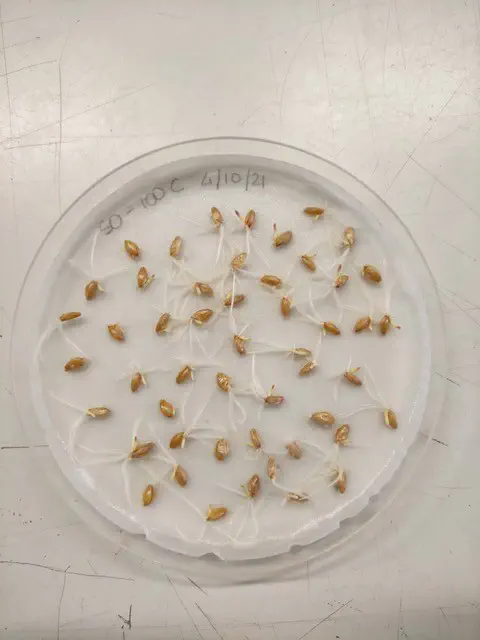 Image credit: [Cambridge.org]
Image credit: [Cambridge.org]Abstract
The maturity of compost can be determined using sensitive species to phytotoxic metabolites by germination bioassays. In order to obtain a stabilized and non-phytotoxic product, the phytotoxic compounds must be biodegraded or immobilized during the maturity phase of composting. In this study the sensitivity of lettuce (Lactuca sativa, var. Four Seasons) and radish (Raphanus sativus, var. Cherry Bell) seeds to extracts from composted agroindustrial residues was evaluated. The extracts were obtained by mixing agroindustrial residues with distilled water in a ratio of 1:5. The agroindustrial residues evaluated were residues of instantaneous coffee (C), a mixture of residues of instantaneous coffee and fresh fruit residues (C+F) and wine residues with broiler manure residues (V+G). The relative germination rates (PGR), relative growth of radicle (CRR) and germination index (IG) were determined for both species. The results showed that radish was more sensitive to phytotoxic compounds than lettuce. V+G showed the highest phytotoxicity for both species according to the germination index. The Chilean Regulation for Compost (INN, 2004) establishes the phytotoxicity level based on the relative germination rate of radish seeds. According to this Regulation only V+G was classified as phytotoxics free compost. The germination index was the most sensitive parameter for evaluating the chemical maturity level of composted residues for agricultural use. This index was especially useful for evaluating the phytotoxicity of compost or any organic substrate used for pots. This is due because when plants are grown in pots the effects of phytotoxic compounds are more important than when plants are cultivated in the field.
Supplementary notes can be added here, including code and math.